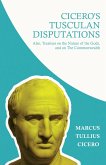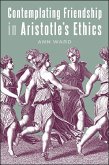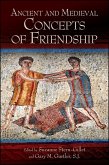In his seminal works, "Treatises on Friendship and Old Age," Marcus Tullius Cicero intricately weaves philosophical discourse with personal reflection, offering a rich exploration of two pivotal aspects of human experience. In a style that blends rhetoric with moral inquiry, Cicero engages with the notions of friendship as a foundational social bond and the inevitability of aging, framed within the context of Roman customs and Stoic philosophy. Through dialogues and contemplative essays, he articulates a vision of aging that embraces wisdom and virtue, countering societal fears with rational acceptance and the celebration of deep interpersonal connections. Cicero, a statesman, orator, and philosopher of the late Roman Republic, draws from his own experiences of political turmoil and personal loss to address profound ethical questions. His role as a public figure and his studies in Greek philosophy heavily influence his reflections, providing him with a lens through which he examines both the joys and challenges of intimate relationships and the aging process. Cicero'Äôs commitment to public service and philosophy serves as a backdrop for his exploration of enduring values essential to human life. I wholeheartedly recommend "Treatises on Friendship and Old Age" to readers seeking timeless wisdom interwoven with classical thought. Cicero'Äôs insights resonate across centuries, offering indispensable perspectives on cultivating meaningful relationships and approaching life's inevitable transitions with dignity. This work not only enhances our understanding of Roman philosophy but also serves as a guide for contemporary readers navigating the complexities of friendship and aging.
Dieser Download kann aus rechtlichen Gründen nur mit Rechnungsadresse in A, B, BG, CY, CZ, D, DK, EW, E, FIN, F, GR, H, IRL, I, LT, L, LR, M, NL, PL, P, R, S, SLO, SK ausgeliefert werden.









